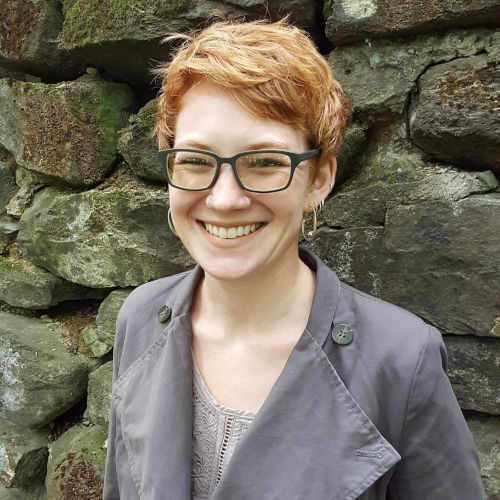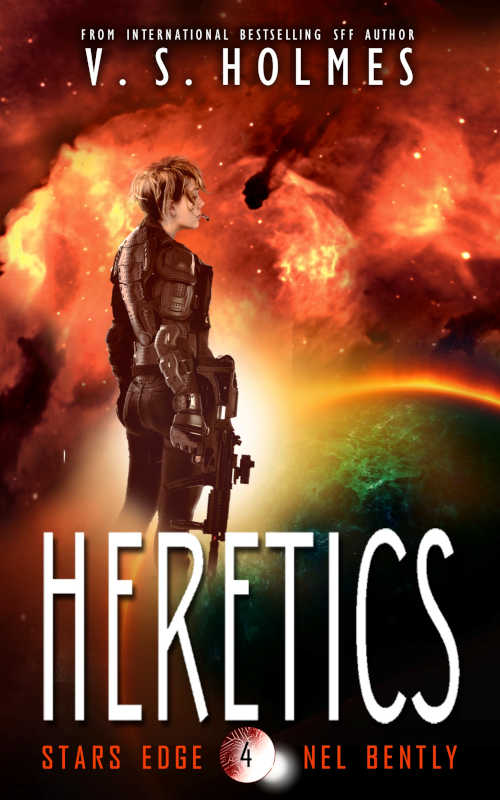“You can’t miss the library”: the quest to make fantasy worlds accessible

We’re making progress, but we have a ways to go before fantasy settings—real and imagined—are accessible to all.
by V.S. Holmes
Stark land sweeps from the buildings atop the hill. I’d liken farm fields to skirts, but this vista is too sharp for that. These are nature’s tassets. Narrow stone paths and hard-packed trails wind between sod roofs. This is a place with the brutality of Lord of the Rings or Game of Thrones. The latter was filmed here, and I can see why: I’d gladly immerse myself in this landscape. But it, like many places I’ve visited in the past year, has barriers.
 Fantasy is known for austere settings, twisting streets, and remote cities. Even outside of the grimdark subgenre there’s a mercilessness. I settle against a wall across from the broad stairs, knuckles white on the handle of my cane. Pain tunnels my brain to the duality of dissociation and immediacy.
Fantasy is known for austere settings, twisting streets, and remote cities. Even outside of the grimdark subgenre there’s a mercilessness. I settle against a wall across from the broad stairs, knuckles white on the handle of my cane. Pain tunnels my brain to the duality of dissociation and immediacy.
“You can’t miss the library!” a group leader protests. As if, in a building with no lift, it’s a choice. Earlier, I leaned—too slow to grab one of the few offered seats—on a wooden desk listening to Skaldic poetry. In reality, my body was screaming, my ears ringing from pain, and I barely heard a word.
What would Frodo have done in a wheelchair? Forget the whole “I can’t carry it for you, but I can carry you” bit. Even Samwise Gamgee would grow weary of carrying my sorry self through the Dead Marshes.
You can’t miss the library. I think of the worlds of my novels, all the startling magical beauty in the books that made me who I am as a writer. I couldn’t navigate those worlds anymore. Not with this body.
What would Frodo have done in a wheelchair? Forget the whole “I can’t carry it for you, but I can carry you” bit. That works for a cinematic volcano climax, but even our dear Samwise Gamgee would grow weary of carrying my sorry self through the Dead Marshes. I’d grow weary of it, too. The idea that the only way I get somewhere inconveniences someone else is insidious. But not always wrong.
So how do we make fantasy worlds—yes, even Mount Doom—that are known for their inaccessibility, accessible?
Return to the root of fantasy, of the magical, the awe inspiring. Many argue this lowers the stakes. You’re the author. Do what you do and untangle that plot-knot. How you solve this depends on whether you’re writing an arc that revolves around their disability or a “casually” disabled character (someone whose condition isn’t directly related to any main plot arc). Even if their disability is part of the plot, that doesn’t mean the entire world you’ve written should be completely devoid of accessibility—where is their sanctuary?
Egyptians built pyramids—surely your fantasy culture could create a city without a single set of stairs.
You can make your world more inclusive by switching up architecture and tech, using magic, and adding different forms of communication.
Have a character who can’t walk? Ramps and wheels are great! Egyptians built pyramids—surely your fantasy culture could create a city without a single set of stairs. Able folks aren’t inconvenienced by a ramp vs. stairs. A great example of this occurs in Avatar: The Last Airbender. Teo uses a wheelchair fitted with glider wings so he can fly with others at the air temple.
In fantasy, magic serves both as an accessibility device or disability: one of my main characters, Keplan, involuntarily hears others’ thoughts, which manifests similarly to unwanted thought syndrome in someone with unmanaged OCD. If you have magic, I guarantee there are spells to reduce anxiety or help people sleep. Braces with pain-relieving runes for people like me. I’ve seen dozens of herbal handbooks with “magical” plants, too!
What about communication? Perhaps your character is non-verbal or deaf. Many cultures developed sign language independent of one another, even if it began solely as gestures. The Adem culture in Rothfuss’s Kingkiller Chronicles uses gestures for mood and context for its spoken language. My own Deaf protagonist, Rih, was raised in a culture where many are hard of hearing or completely deaf. There are still hurdles she has to overcome, but many people in the city know or learn sign language.
If you’re worried about realism, all of these things have been present in our own world for a long time, and some of our most brilliant minds are housed in bodies that don’t work typically.
You can’t miss the library.
How can your character defeat the orc sorceress if they can’t research spells? You could toss them on the shoulders of a well-meaning companion, who trots up each step like it’s nothing, but it’d be an inconvenience to both. Like me, clenching a stranger’s wool sweater in my hands, your character would have to laugh to avoid sobbing at the embarrassment.
But where’s the creativity in that? Give your world ramps, wheels, depression-relieving spells and hand signs for non-verbal people. Give your character a reason to save this accessible world you’ve created for them.
And then give them something brand new to fight.
V.S. Holmes is an international bestselling SFF author. They write the Nel Bently Books and the Reforged series. Their debut, Smoke and Rain, won New Apple Literary’s 2015 Excellence in Independent Publishing Award. They also work as an advocate for disabled and queer representation in SFF worlds.
Connect with V at their website, and be sure to pick up a copy of their latest novel, Heretics: Stars Edge: Nel Bently.